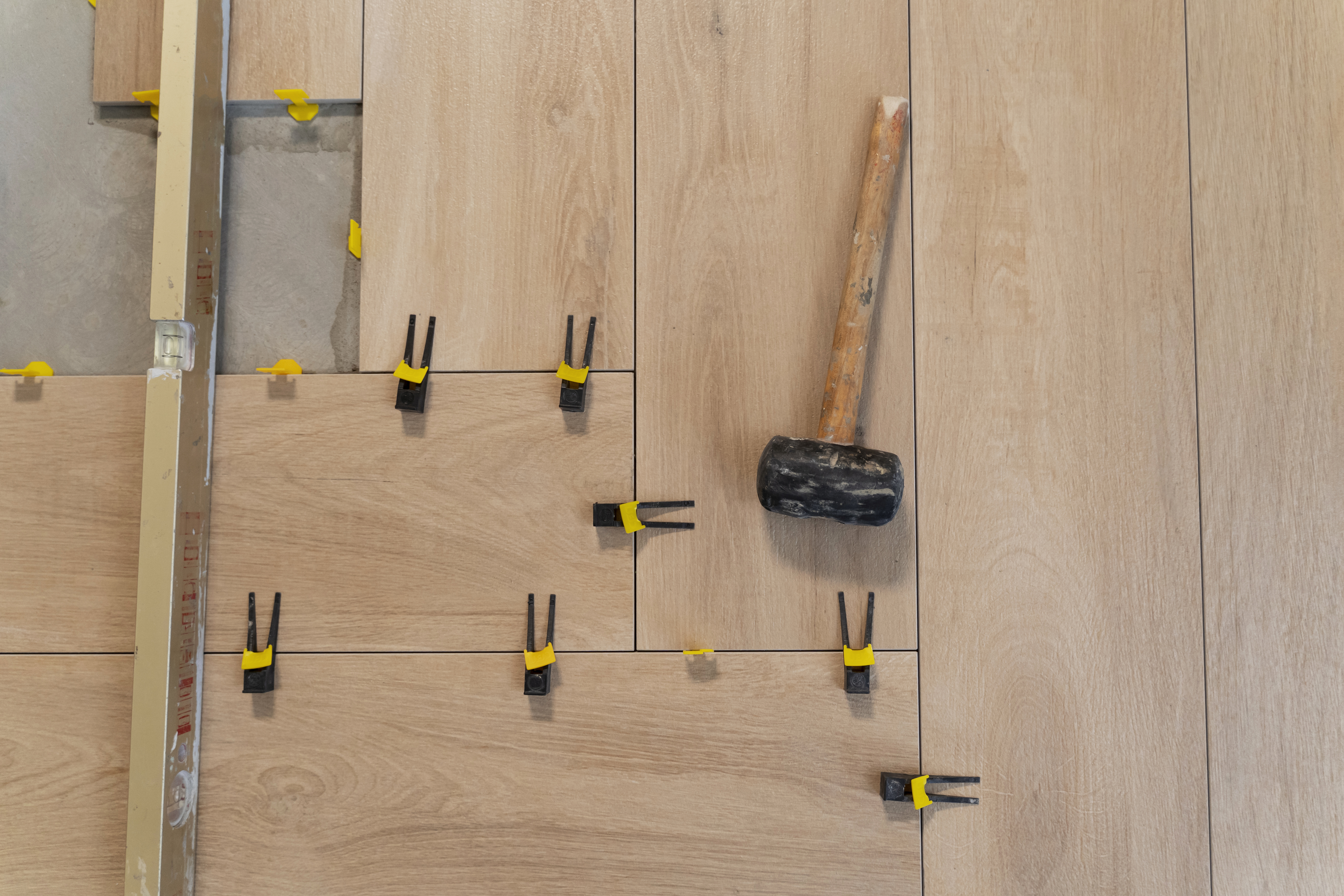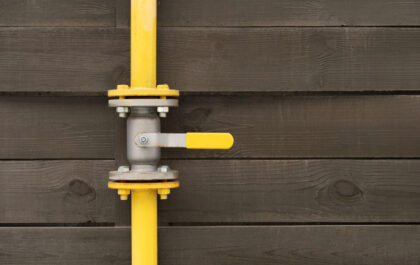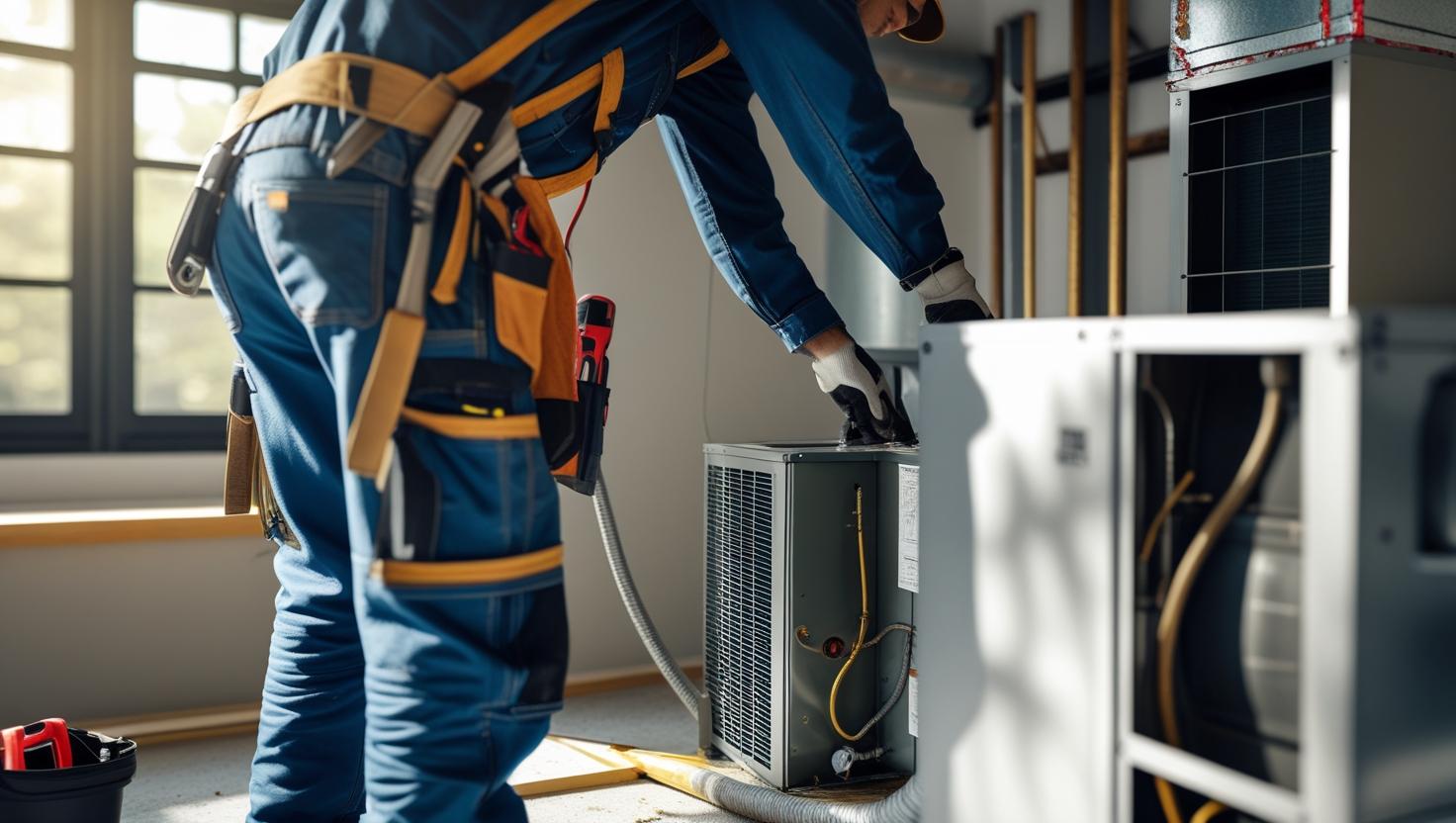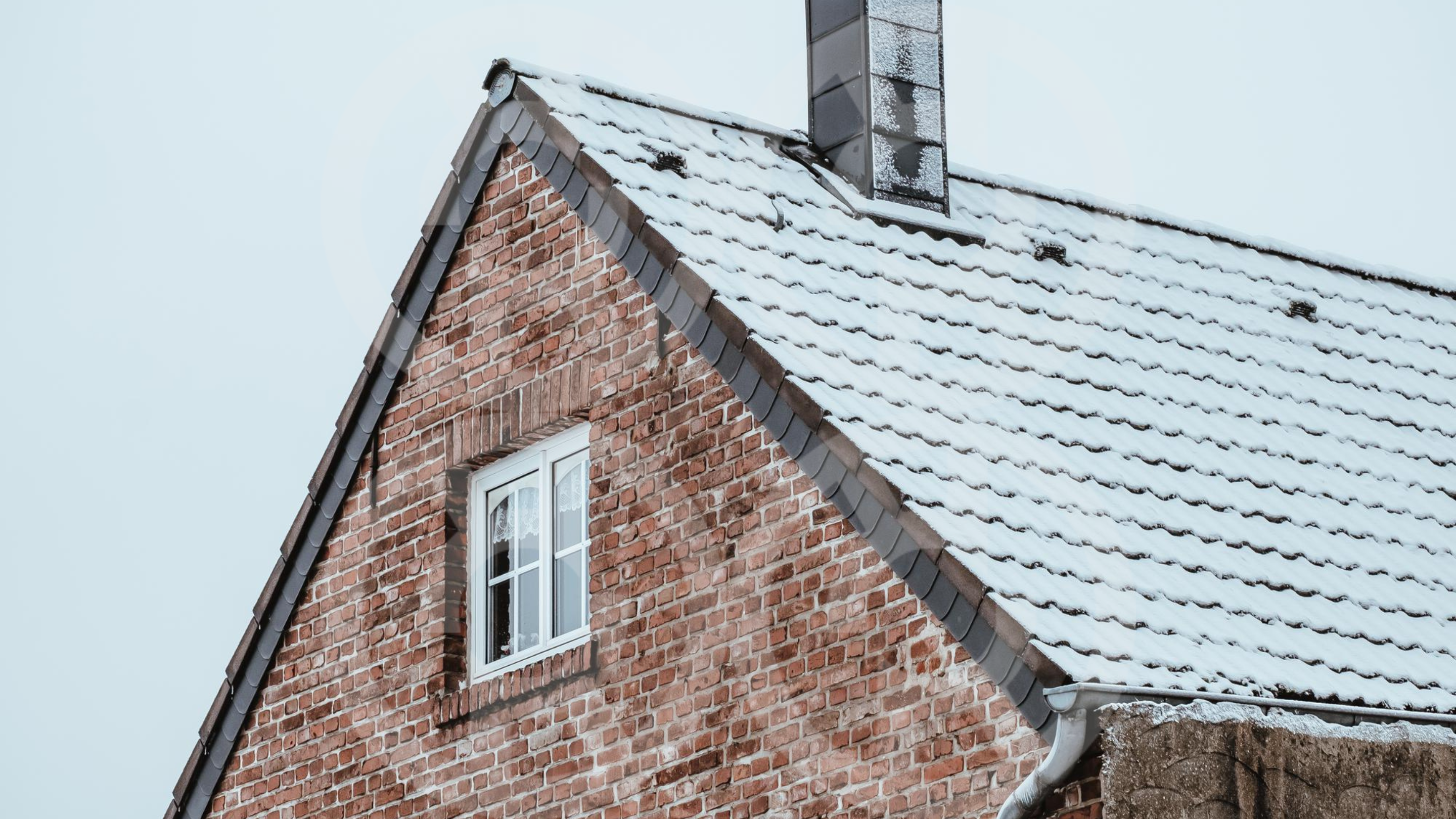Concrete floors have evolved far beyond their industrial roots to become a stylish and durable flooring choice for modern homes. Whether you’re refreshing a basement, kitchen, or patio, a finished concrete floor can add character and resilience. Ready Remodel presents a detailed guide to help you explore a variety of concrete floor finishes – each offering unique aesthetic appeal and practical benefits. We’ll cover options for concrete floors, from budget-friendly treatments to eye-catching decorative finishes, helping you find the perfect match for your space and lifestyle.
1. Troweled Concrete Floor Finish
The troweled finish is the foundation of many concrete floors. After the concrete slab is poured, it’s smoothed and leveled with a trowel, resulting in a flat surface with a somewhat rough, matte texture. You can add slip resistance by running a broom across the still-wet concrete.
This no-frills finish is typically found in outdoor settings like driveways and walkways but also serves as an excellent base for subsequent treatments in indoor areas such as kitchens or basements. Because it is part of the slab finishing process itself, its cost is included in the price of concrete slab installation, usually between $4 and $8 per square foot.
| Pros | Cons |
|---|---|
| Highly durable and long-lasting | May look too industrial or outdoor-like for some interiors |
| Provides a strong base for other floor finishes | Typically gray and plain in appearance |
| Easy to maintain and clean | Less visually appealing than polished or stained finishes |
| Slip-resistant with texture options |
Best for: Driveways, walkways, outdoor spaces, and as a base for indoor concrete floor treatments.
2. Sealed Concrete Floor Finish
Sealing concrete is one of the simplest, most cost-effective concrete floor finishing options. Applying a concrete sealer creates a protective layer that guards against stains, corrosion, and weather damage, while also imparting a glossy or satin appearance depending on the sealer type.
The sealing process is fairly quick and affordable, typically costing about $1.50 per square foot. Although sealing doesn’t deliver the mirror-shine of polished concrete and requires upkeep every two to five years, it improves both appearance and durability over bare concrete.
| Pros | Cons |
|---|---|
| Blocks stains and chemical damage | Wears down faster in heavy foot traffic areas |
| Instantly enhances concrete shine | Less durable than polishing or epoxy coatings |
| Fast and affordable application | Requires periodic resealing |
| Improves curb appeal over bare concrete | Maintenance demand higher than other finishes |
Best for: Garages, storage areas, driveways, and some kitchen or bathroom floors.
3. Polished Concrete Floor Finish
Polished concrete elevates the standard troweled floor by grinding it with progressively finer abrasives to achieve a smooth, high-gloss surface. Common in modern homes and commercial spaces alike, this finish offers a sleek look that reflects light beautifully.
This treatment is notably low maintenance: no waxing or sealing is needed once polished. It also enhances moisture resistance and stands up well to heavy traffic. Polished concrete installation requires specialized tools, so hiring a local flooring expert is advisable. The cost ranges typically from $3 to $8 per square foot.
| Pros | Cons |
|---|---|
| Long-lasting and incredibly durable | Complex process, not DIY-friendly |
| Elegant, glossy, and modern finish | Can be slippery when wet |
| Low maintenance without waxing | May contribute to noise as a hard surface |
| Resistant to moisture and stains |
Best for: High-traffic indoor areas like kitchens, garages, basements, and entryways.
4. Stained Concrete Floor Finish
If you want to breathe color and life into concrete, staining is an excellent way. Acid-based stains react chemically with the concrete to create variegated, marble-like effects, while water-based stains provide uniform hues. Both produce rich, permanent colors that resist fading and chipping.
The staining process includes thorough surface preparation – etching and stripping for adhesion – followed by applying the stain and usually polishing for shine. Basic staining ranges between $2 and $6 per square foot, with intricate designs priced as high as $12 to $25 per square foot due to complexity. Because an even application is tricky, hiring a professional is recommended.
- Acid-based stains imitate natural stone surfaces with color variation.
- Water-based stains deliver consistent, uniform color tones.
| Pros | Cons |
|---|---|
| Wide array of beautiful color finishes | May emphasize imperfections in the slab |
| Design versatility: marbling, stencils, swirls | Limited repair options for damaged stained floors |
| Durable and retains color over years | Staining application is best done by experienced pros |
| Can be combined with polishing or sealing | Uneven color if not applied properly |
Best for: Kitchens, bathrooms, patios, garages, and other high-traffic locations.
5. Dyed Concrete Floor Finish
Dyeing concrete deposits color by soaking it into the surface, resulting in a smooth, uniform appearance. Unlike stains, dyes don’t chemically react with concrete but offer vibrant hues like bright blue, red, and yellow. Water-based dyes tend to create subtle marbling, while solvent-based dyes produce consistent solid colors.
Dyes dry quickly and are generally easier to apply, making dyeing a more DIY-accessible concrete floor finishing option. However, they may fade faster under sunlight and show wear quicker than stains. Dyeing costs typically range from $3 to $15 per square foot.
| Pros | Cons |
|---|---|
| Vibrant color palette with options for uniform coverage | Colors fade with prolonged sun exposure |
| Simple application, suitable for DIY | Less suited for detailed pattern designs |
| Often more budget-friendly than stains | Wear and tear arrive sooner compared to stains |
| Works on new or existing concrete floors |
Best for: Entryways, basements, kitchens, bathrooms, and mudrooms.
6. Epoxy Concrete Floor Finish
Epoxy coating is among the toughest concrete floor finishes, especially popular for garage floors. Unlike stains or dyes that penetrate concrete, epoxy forms a surface coating through a chemical reaction between a resin and hardener.
Easy to apply in kit form, epoxy provides a hard, glossy, and colorful layer protecting concrete against oil stains, tire marks, and heavy wear. Pricing generally starts from $0.50 per square foot, making it a cost-effective, long-lasting solution that attracts DIY enthusiasts and professionals alike.
| Pros | Cons |
|---|---|
| Exceptionally durable and resilient | Improper application can cause cracking or peeling |
| Wide range of colors and finishes | Longer curing times compared to other finishes |
| Simple maintenance and cleaning | Can be slippery when wet |
| Suitable for applied over existing floors |
Best for: Garage floors and other high-traffic, heavy-use areas.
7. Faux Grout Line Overlay Concrete Floor Finish
You don’t need tile to get the look of grout lines on concrete floors. Using tools like a circular saw with a diamond blade, you can etch faux grout lines into a polished concrete surface creating patterns that mimic tile layouts.
This cost-effective alternative ranges between $3 and $7 per square foot and allows the use of stains and marbling in conjunction with the etched lines for a tile-like aesthetic without the expense or installation complexity of traditional tile.
| Pros | Cons |
|---|---|
| Achieves a tile-like appearance without tiling | Errors in etching are difficult to correct |
| More affordable than installing actual tile | Requires addressing floor flatness beforehand |
| Available in various colors and designs | |
| Can be applied over existing concrete floors |
Best for: Kitchens, bathrooms, entryways, and basements.
8. Stenciled Concrete Floor Finish
Stenciling takes concrete design to the next level by imprinting complex patterns and multi-color effects on the surface. You can choose from numerous stock patterns or create custom designs for a truly unique floor.
Techniques include using dyes through stencils, skim coating for raised embossed textures, or sandblasting to etch intricate patterns. Due to the labor-intensive process, stenciling can be on the pricier side, around $9 to $20 per square foot, but the dramatic results can completely transform a space.
| Pros | Cons |
|---|---|
| Creates personalized, detailed floor designs | May be expensive and time-consuming |
| Wide array of design and color options | Possible cracking over time |
| Durable surface finish | |
| Relatively easy to keep clean |
Best for: Patios, bathrooms, kitchens, entryways, and mudrooms looking for unique decorative floors.
9. Exposed Concrete Floor Finish
This finish exposes the natural aggregates within concrete – such as pebble, stone, or gravel – by grinding down its surface more deeply than typical polishing. The effect often resembles luxurious terrazzo floors found in high-end homes.
Keep in mind that aggregate quality varies by mix batch; some floors may look industrial rather than elegant. Testing a small section first is wise. Expect to pay between $12 and $15 per square foot for this upscale look.
| Pros | Cons |
|---|---|
| Unique, textured finish with natural visual interest | May appear industrial without quality aggregate |
| Can mimic Italian terrazzo, stone, or tile aesthetics | Susceptible to cracking |
| Available with many colors and aggregate options | |
| Durable and easy to maintain |
Best for: Patios, kitchens, bathrooms, and other living areas where a striking design is desired.
Benefits of Finished Concrete Floors
You might think of concrete floors as stark or purely functional, but finished concrete can offer a surprising blend of beauty and practicality in residential settings. Here are some key advantages to consider:
- Longevity: Finished concrete floors are tough and durable, resisting wear and tear for decades.
- Low maintenance: Many finishes resist stains, mold, and water damage, reducing upkeep efforts over time.
- Design versatility: From polished shine to colorful stains and intricate stenciling, options abound to suit any style.
- Cost-effectiveness: Refinishing existing concrete is often more affordable than installing new flooring like tile or hardwood.
How Much Does Concrete Flooring Cost?
The cost for installing concrete flooring widely varies based on finish, design complexity, and site preparation. Basic concrete flooring installation typically runs between $2 and $8 per square foot. More specialized concrete floor finishes, such as multicolor staining or exposed aggregate, can increase prices to $8 – $15 per square foot.
Additional costs may occur if removing existing flooring or leveling uneven surfaces is necessary. Removal costs can add roughly $2 to $6 per square foot.
DIY vs. Professional Installation
Although some concrete floor finishes like epoxy or dyeing may be suitable for skilled DIYers, most concrete treatments and polishing require specialized tools and expertise. Hiring a professional concrete flooring company will provide higher quality, durability, and finish consistency. You could save $1.50 to $5.50 per square foot going the DIY route, but improper application risks costly repairs down the line.
FAQs: Everything You Need to Know About Floor Finishes
What is the longest lasting concrete finish?
Can you seal concrete years after installation?
Can you install flooring directly on concrete?
Ready Remodel hopes this comprehensive guide to concrete floor finishing options gives you the knowledge you need to choose the ideal floor covering for your home. Exploring these types of concrete floor finishes can help increase both your home’s functionality and visual appeal.




